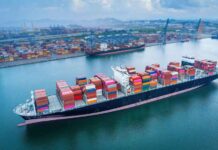As per Moody’s, tariffs, in the case of being imposed at a fast pace and also at scale, can go on to trigger retaliatory actions by sparking off regulatory scrutiny and also inflating the costs throughout the entire supply chain. This kind of chain reaction can, in a very adverse way, lead to disrupting the supplier relationship and, at the same time, bloating up the cost of goods and services, thereby posing a prominent operational and financial issue for businesses that are unable to respond with speed.
For organizations that depend on international supplies, tariffs reshaping global supply chain bring along with them much more than just high prices. They can also result in extended lead times, shipment delays, decreased customer demand, and even government investigations.
The International Ripple Effect cannot be denied – nations hit back with their own retaliatory measures by even boycotting the foreign brands and hence put additional pressure on the international sales as well as profitability.
When it comes to the supplier level, these barriers can further escalate in a faster way. The rising cost often goes on to trickle down to the buyers, which in turn impacts the pricing strategy along with the profit margins. As per the latest US tariff, which is levied on a broad area of imports, there are already concerns raised over supply chain delays and potential shortages. When it comes to supplies operating under financial strain, this kind of fallout can be even more devastating and can range from a very diminished quality of product and demoralized staff to also a weak compliance effort. When under stress, compliance can often go on to fall further, thereby increasing the risk when it comes to penalties and leading to reputational harm.
Responding to this, many businesses are indeed rethinking their strategy in terms of sourcing. Although this may introduce certain novel risks like elevated start-up costs, functional inefficiencies, and also supply capacity, which is limited, proactive measures are indeed key when it comes to building resilience. They go on to include several strategic approaches:
To start with, the businesses must prioritize supplier tracking. This means regularly assessing the supplier’s financial health and also its compliance status to identify early warning signs. Tools such as financial diagnostics, along with risk analytics, go on to offer a very transparent approach to potential susceptibilities. Second, adjusting the contracts as well as pricing structures to reflect the tariffs reshaping global supply chain impact can preserve profit margins and also maintain the trust of clients. Thirdly, looking forward to collaboration throughout the global supply chain by way of open communication and planning, which is done in a collaborative way, can make the partnerships more robust and also distribute the risk among them equally.
It is well to be noted that scenario planning is also very critical. Through conducting stress tests and also developing plans in a contingency scenario, organizations can help prepare for future changes within the trade policies. By maintaining a diversified supplier base whenever feasible is an option; however, it is not always straightforward.
In the middle of this volatility, there also happen to be many opportunities. Companies can go ahead and harness the data-driven tools in order to better predict disruption and also make decisions on the basis of it. Collaborating closely with the internal teams along with technology providers as well as external partners can help to imbibe a culture of agility and long-term progress. The capacity to adapt and also create a global supply chain resilience has become a major competitive advantage.

























